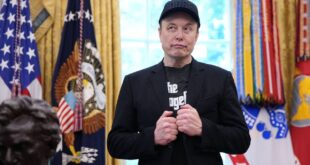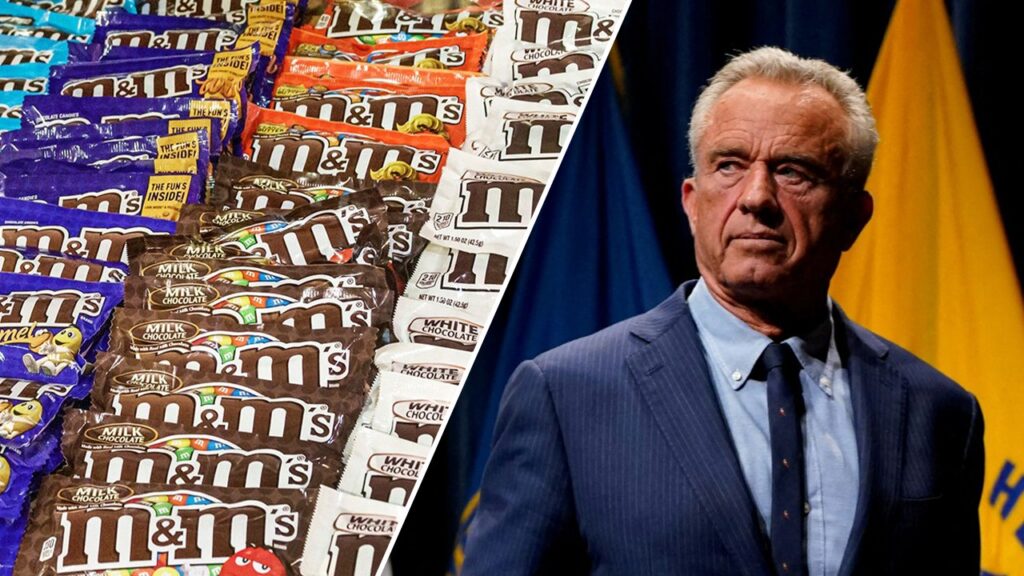
Fox News senior medical analyst Dr. Marc Siegel weighs in on RFK Jr.’s efforts to make America healthier as he targets sugar and food dyes and his potential decision to drop COVID vaccines for kids.
While several major food manufacturers have jumped on board with Health and Human Services Secretary Robert F. Kennedy Jr.’s efforts to eliminate synthetic food dyes from products nationwide, certain candy makers appear to be less enthused by the proposal.
After Kennedy announced a campaign to go after synthetic food dyes in April, many major food manufacturers, such as Nestle, ConAgra, Kraft Heinz, General Mills and PepsiCo, agreed to voluntarily commit to ending the use of petroleum-based synthetic dyes in their products. However, candy manufacturers that rely heavily on artificial food colorings to develop their products are pushing back.
“People can freely buy cannabis, THC products, alcohol, and cigarettes — but vibrantly colored candy is an issue?” asked Christopher Gindlesperger, Senior Vice President of Public Affairs & Communications for the National Confectioners Association. “Give me a break – consumers know that confectionery products are treats and that they contain sugar, food colors, and other FDA-approved ingredients, because candy is intrinsically transparent. People have a unique mindset when they enjoy chocolate and candy that is not present when interacting with other foods. Chocolate and candy are safe to enjoy as they have been for generations.”
PEPSICO TO REMOVE ARTIFICIAL INGREDIENTS FROM POPULAR FOOD ITEMS BY END OF 2025
“People in the U.S. enjoy chocolate and candy 2-3 times per week, averaging just 40 calories and about one teaspoon of added sugar per day – which is far less than the other categories of indulgent food that contain synthetic dyes,” Gindlesperger added.
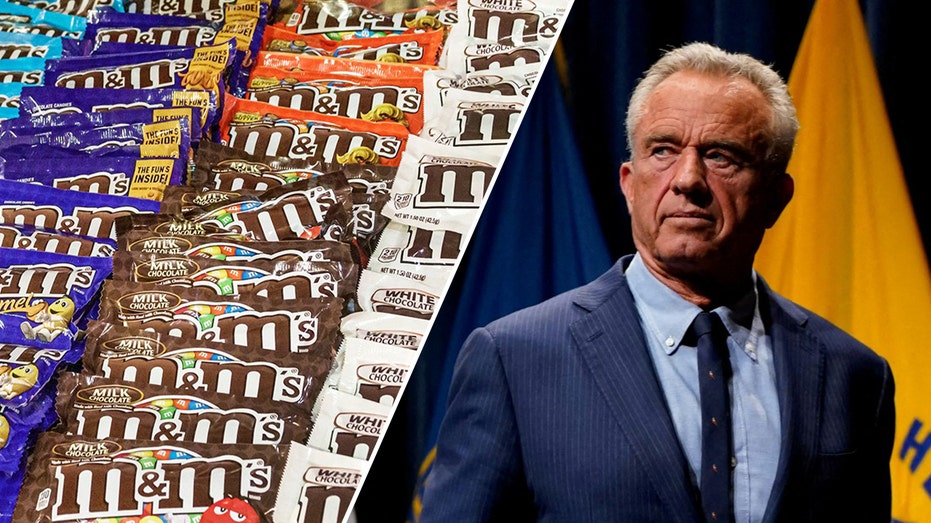
In April, Kennedy’s Department of Health and Human Services announced a campaign to go after synthetic food dyes, which the administration said had been linked to numerous adverse health effects – especially for children. (Getty Images / Getty Images)
MARS, one of the nation’s most prominent candymakers that manufactures M&M’s and Skittles, has refrained from joining the cohort of major food companies that are committing to removing synthetic dyes from their products over the next roughly 2 years.
The refusal to get on board appears to be a reversal from an announcement MARS made in 2016, expressing their intentions “to remove all artificial colors from its human food portfolio globally.” According to The New York Times, the reversal stemmed from internal company research which found that consumers were less concerned with the health and nutritional value of candy, compared to that of other food categories.
STARBUCKS WILL FURTHER ALIGN ITS MENU WITH ‘MAHA’ INITIATIVE, RFK JR. SAYS
“We are aware of the administration’s request and our technical experts are exploring alternatives that satisfy scientific safety criteria, technical requirements and consumer preferences,” a MARS spokesperson told Fox Business. “At this time, we have not yet identified fully effective solutions and believe it is premature to make commitments until we are certain they can be fulfilled. We will continue our efforts and anticipate being able to offer consumers more choice in the near future. Meanwhile, it is important to underline that all of our products continue to be safe to enjoy and meet the high standards and applicable regulations set by food safety authorities.”
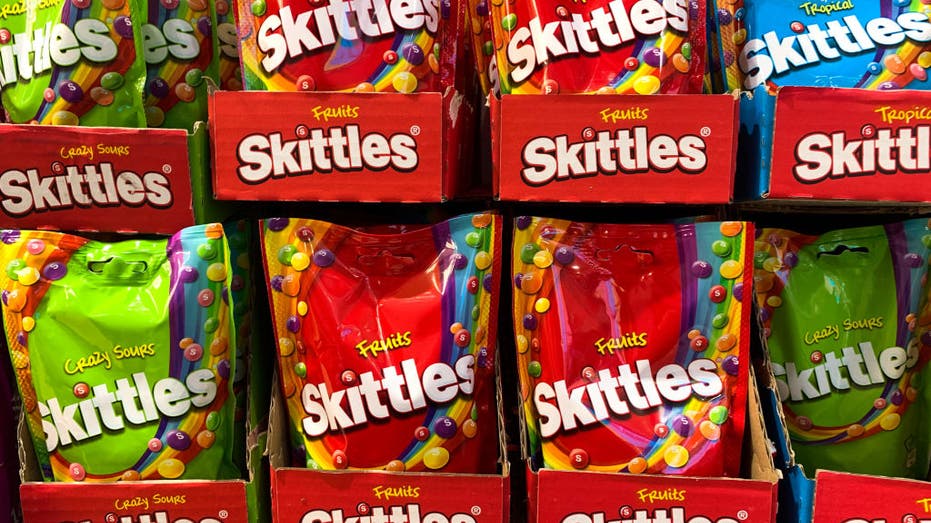
Skittles candies are seen in a shop. (Jakub Porzycki/NurPhoto via Getty Images / Getty Images)
Department of Health and Human Services spokesperson Andrew Nixon said in response to this article that it was “disappointing” that a company like MARS “will prioritize” getting rid of artificial food dyes “in Europe” but will not do the same in the United States.
“Secretary Kennedy is committed to encouraging the removal of artificial dyes from the food supply, particularly those linked to behavioral and developmental risks in children,” Nixon continued, pointing out that many other companies have acted, which, he said, shows “when the government sets clear, science-based standards, the food industry listens and acts.”
“HHS and FDA urge all sectors to follow suit in putting public health first,” Nixon concluded.
GET FOX BUSINESS ON THE GO BY CLICKING HERE
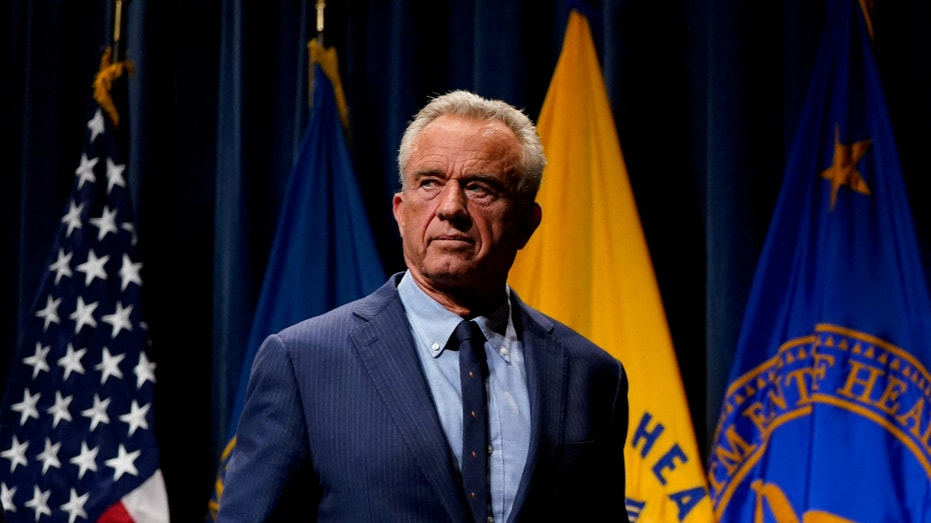
Health and Human Services Secretary Robert F. Kennedy Jr. leaves the stage after discussing the findings of the Centers for Disease Control and Prevention’s (CDC) latest Autism and Developmental Disabilities Monitoring (ADDM) Network survey, at the D (Reuters/Elizabeth Frantz / Reuters)
Gindlesperger, meanwhile, did say that despite the criticism from candymakers, they are in agreement with the Trump administration “that science-based evaluation of food additives will help eliminate consumer confusion and rebuild trust in our national food safety system.”
“We follow and will continue to follow regulatory guidance from the authorities in this space, because consumer safety is our chief responsibility and priority,” he concluded.
 Latest World Breaking News Online News Portal
Latest World Breaking News Online News Portal


